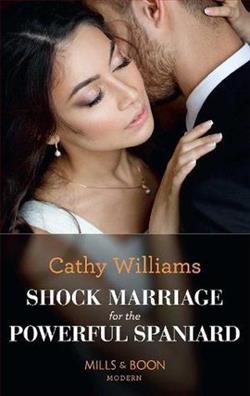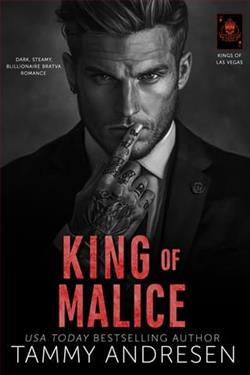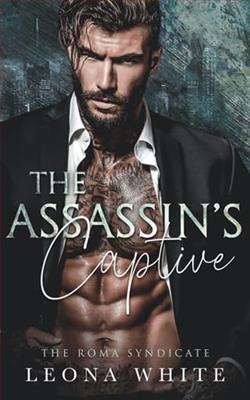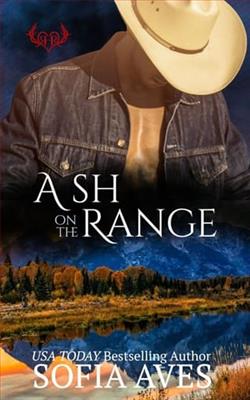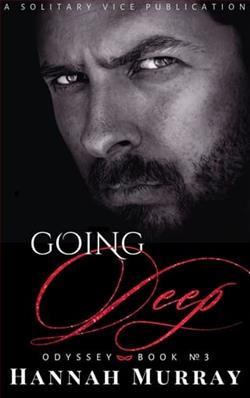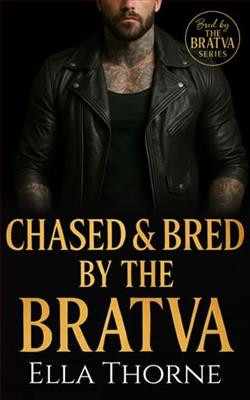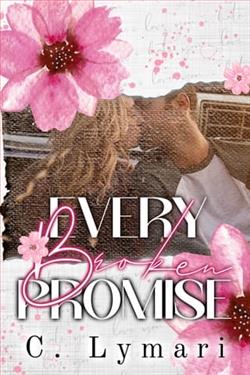Page 15 of The Road to Avalon
“A rider coming,” Llacheu, who’d been leaning against the wall, called out.
Arthur sat bolt upright, and so did I, snatched from my reverie. A rider always meant news of some kind and not always good.
A hundred yards off, a man on a bay horse was threading his way between the fields, heading toward the road up to the fortress, his gaze fixed on the summit and ignoring what he must have taken for laboring peasants.
“Give him a shout,” Arthur said, confident the message must be for him.
Cei, who had a voice worthy of a town crier, lumbered to his feet and heaved a breath in. “Hoy! Over here, messenger boy. The king’s here, not up there.”
Heads turned in every field and the rider swung his horse in our direction. Arthur and I got to our feet, and we all watched the rider’s approach.
Six paces from us, he halted his horse and dismounted. It being summer, his cloak was rolled on the back of his saddle, and the young rider wore only a light tunic and braccae, but nevertheless, the heat had flushed his cheeks, and moisture beaded his downy upper lip. Sweat drenched his spent horse and foamed on its chest and neck. The warm smell of it carried on the breeze.
The messenger bowed to Arthur, showing admirable lack of surprise to be addressing a half-dressed farm laborer on the edge of a hayfield as his lord. “Milord King,” he began as he rose from his bow. “I bring you news of the death of a fellow king.”
Almost unnoticed, the men in the nearest fields had drawn closer out of a natural curiosity about what news the young man had brought. A murmur of comment now rippled through them, and they edged closer still. Work appeared to have stopped in every field. They must all, like me, have been wondering which king had died.
“Who?” Arthur asked.
Sitting cross-legged on our other blanket, Merlin, who’d been talking to Archfedd, stared at the messenger expectantly.
The young man straightened his back. “My liege lord, King March of Caer Dore in Cornubia, has breathed his last. I’m here to ask you, as the High King, to attend his funeral rites.”
Old King March, who’d been white-haired but not bowed by age the first time I’d laid eyes on him nearly twenty years ago. The man who’d married Essylt of Linnuis, even though she’d been in love with his son, Drustans. For a moment I was back in Caer Lind Colun, capital of Linnuis, with Essylt sobbing to me that it was Drustans she loved and not his father whom she’d never met. But she’d been betrothed, and her father had dispatched her south to marry the old king, while I’d kept Drustans away from her. I’d longed to help, but my hands had been tied by Dark Age protocol.
Someone pushed their way to the front of the now sizeable crowd around us. Drustans himself. Now in his early thirties and still unmarried, his handsome face blazed with light, and his whole body quivered with unconcealed excitement. No sadness for a dead father in him. Instead, he must be thinking that at last Essylt could be his.
So why did I have such a bad feeling in my stomach?
Chapter Eight
The death ofa fellow king didn’t always require Arthur’s attendance at the funeral rites, but March had been a neighbor, and with his kingdom being out along the southwestern toe of Britain there’d likely be no other kings attending. Arthur declared it his duty to go.
With the summer heat, speed would be of the essence. The messenger was provided with a fresh horse and, after refreshment, packed off on his return journey to let Caer Dore know we would be hot on his heels.
Back at the fortress we prepared to leave, the haymaking forgotten.
“We won’t need to take a large force with us,” Arthur said as he sloshed cold water over his suntanned torso in our chamber. “Cei will come to pay his respects, as Lord of Din Tagel. And I’ll take Merlin, too. Llacheu can remain in command here and organize the men I leave behind to continue with the haymaking. It’s important we don’t miss this window of good weather.”
I pulled off my simple dress and joined him in his ablutions. “I’ll come too. Essylt will need some feminine support.”
He brushed wet hair out of his eyes. “Yes. As my queen, you’ll need to come. We should both honor March with our presence.”
While I finished washing, he began rummaging in his clothes chest and flinging clothes at his saddlebags where they lay on the bed. “Better take my crown.”
Which meant I’d better take mine too. I hurriedly found the braccae and tunic I used for riding and wriggled into them, then joined Arthur in packing. My version was much tidier than his.
A knock rattled the door into the Hall.
“Enter,” Arthur called, without looking up.
I’d expected it to be Merlin or Cei, but it wasn’t. Drustans stood there, everything about him bright with expectation. My wary heart did a little flip of fear. There were things I knew about Drustans I’d never told anyone, not even Merlin, who knew about his and Essylt’s short-lived love affair. Right now, the sense of dread wasn’t far away as I stared into his excited eyes. The stern, humorless young man of recent years had vanished, and the romantic boy stood before me in his stead, almost quivering with longing.
Despite his excitement, he managed to remember to make a quick bow. “Milord. I shall accompany you to claim my throne,” he declared, chin raised, almost in defiance. “I am a king, now.”
So he was, but that thought didn’t still my nagging fears. Back in my old world, my father had taken me, as a child, to see this young man’s rocky tombstone, clearly marked even then with the carved inscription in ancient capitals– DRUSTANS HIC IACET CUNOMORI FILIUS.Here lies Tristan, son of Cunomorus. His father’s nickname– hound of the sea. No mention of Drustans ever having been a king. Although what that meant, I had no idea. Probably nothing good.
Arthur stepped away from our bed, a matching light of excitement burning in his eyes. “You are indeed, my Lord of Caer Dore.” He made a sweeping bow. “But I shall be sorry to lose you to your kingdom. You’ve served me well as a warrior and you’ll be missed.”








